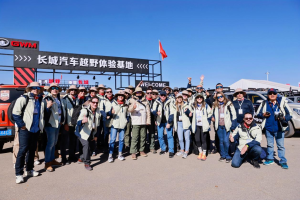Uganda’s parliamentary committee on defense and internal affairs summoned the country’s defense minister to explain under what circumstances the Ugandan troops were deployed in South Sudan without parliamentary approval.
There is fierce debate in the Ugandan Parliament as to why a Constitutional procedure was not followed before sending troops to South Sudan, where fierce fighting erupted in mid-December leaving over 1,000 people dead in one of the worst ethnic fighting in the world’s newest country.
Both the Ugandan military and South Sudan authorities have defended the deployment noting that it was timely to prevent more deaths.
“Why is everyone focusing their attention on UPDF (Uganda People’s Defense Force)? Did the world want the situation to turn into complete genocide (before) any intervention?” Samuel Lominsuk, the South Sudan ambassador to Uganda was quoted as saying by the local daily Monitor on Thursday.
“In Africa, what happens in one man’ house must be a concern for all the neighboring homes,” he added. Towing the same genocide line, Uganda’s Chief of Defense Forces Gen. Katumba Wamala said the Ugandan troops will stay in South Sudan to prevent further deaths.
“It was important for us to go there. The SPLA (South Sudanese army) had collapsed and it was matter of time to see another Rwanda there,” Gen. Wamala was quoted as saying by Uganda’s state owned New Vision daily on Thursday. Wamala was referring to the 1994 Rwanda Genocide where over 800,000 people were massacred.
Ugandan army spokesman Lt. Col. Paddy Ankunda says Uganda deployed troops to guard key installations in the South Sudan capital Juba like the airport. He said this has enabled the military to evacuate over 30,000 Ugandans and foreigners from Juba, Bor and Bentiu.
STRATEGIC INTERESTS Uganda has political, military and economic strategic interests in South Sudan. Economically South Sudan is a major destination of Uganda’s exports. Thousands of Ugandans are involved in trade in South Sudan.
Statistics by Uganda’s central bank, Bank of Uganda, show that Uganda earned an estimated 1.3 billion U.S. dollars from exports to South Sudan in 2012 up from 630 million dollars in 2010. A number of Ugandan goods ranging from agricultural produce, soda, beer, cattle and services have already found market in South Sudan.
“The fighting in South Sudan could not have come at a worse time. Many Ugandans, other nationals as well as natives have lost their businesses, properties and money. Some have paid the ultimate price — life,” said Olive Kigongo, president of Uganda National Chamber of Commerce and Industry in a statement published here on Thursday.
Uganda’s Prime Minister Amama Mbabazi while briefing the country’s envoys on Jan. 4 said regional peace and security is paramount to the country’s attainment of its development goals.
“You are all aware today, because of the conflict in South Sudan and the eastern Democratic Republic of Congo, Uganda has lost a lot of business in billions of Uganda shillings,” he said.
“You saw businessmen crying during Christmas for failing to realize the expected sales because of the crises in the two countries which have been the two major destinations of Ugandan’s merchandise. This state of affairs best explains the importance of peace and security for sustainable development,” he added.
On the military front, there is intelligence showing that the Ugandan rebel group Lord’s Resistance Army (LRA) could use the chaos in South Sudan to launch attacks against Uganda, according to Lt. Col. Ankunda, the military spokesman.
The LRA have previously used the chaos in South Sudan before it became independent from Sudan in 2011 to launch attacks against Uganda. Although the outfit was militarily defeated and is holed up in the northeastern DRC jungles, Ankunda says they could reorganize and sneak through South Sudan to attack Uganda.
REFUGEE INFLUX
Humanitarian agencies handling the influx of South Sudanese refugees crossing into Uganda say they are overwhelmed by the number.
According to a Jan. 6 update report by the United Nations High Commissioner for Refugees (UNHCR), a total of 23,546 South Sudanese refugees had arrived in Uganda since Dec. 16. The report says many more people are hiding near the border and trying to make their way across unhindered.
“The huge influx of South Sudanese refugees in the last several days has created a dire situation as UNHCR/OPM (Ugandan government) and other humanitarian actors in the area scramble to meet even the basic needs of the new arrivals,” said the report.
“Water and sanitation facilities have been overwhelmed and the capacity to provide timely and adequate assistance has been fully overstretched,” it added. There are ongoing talks in the Ethiopian capital Addis Ababa between the warring parties in an attempt to stop the fighting.




